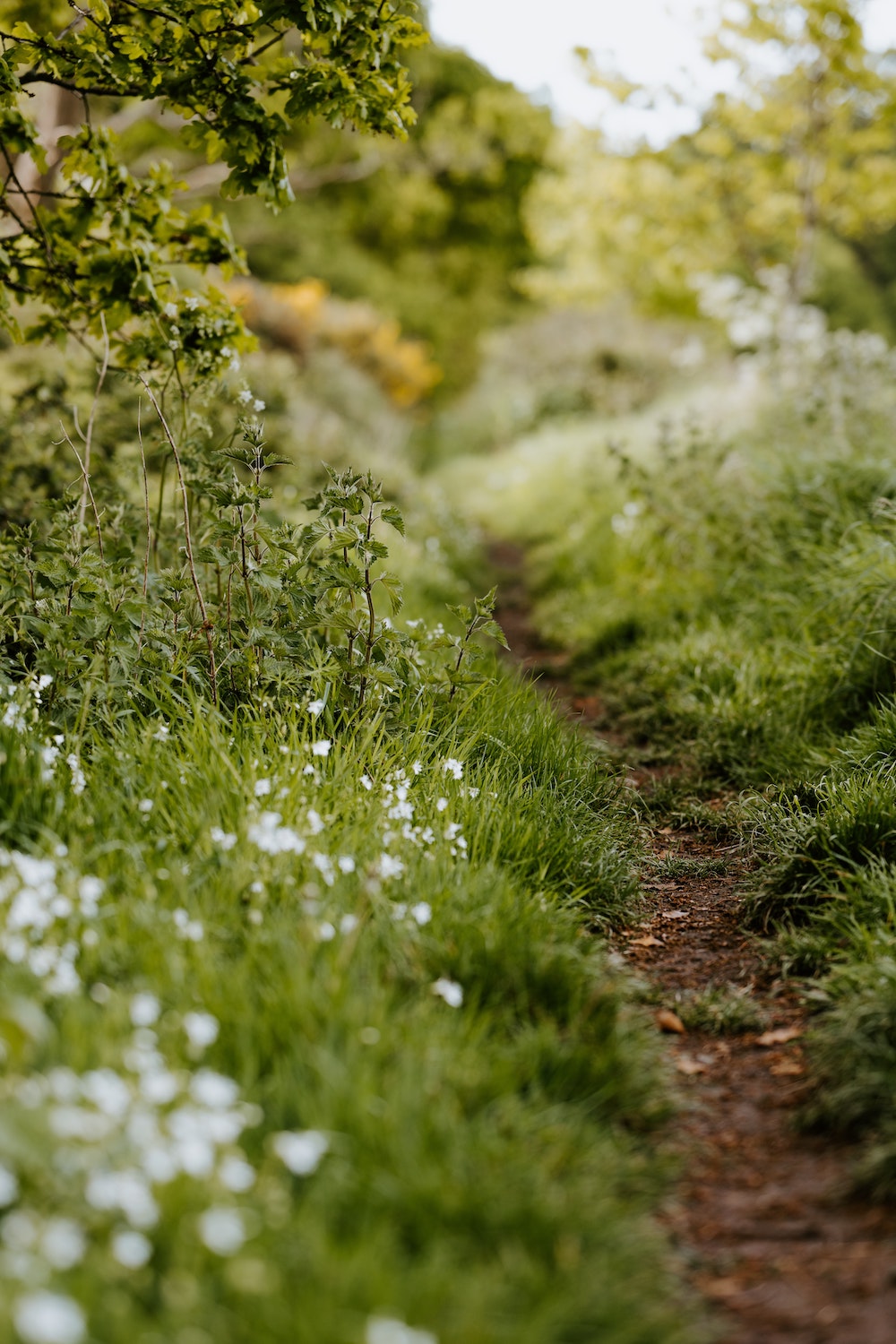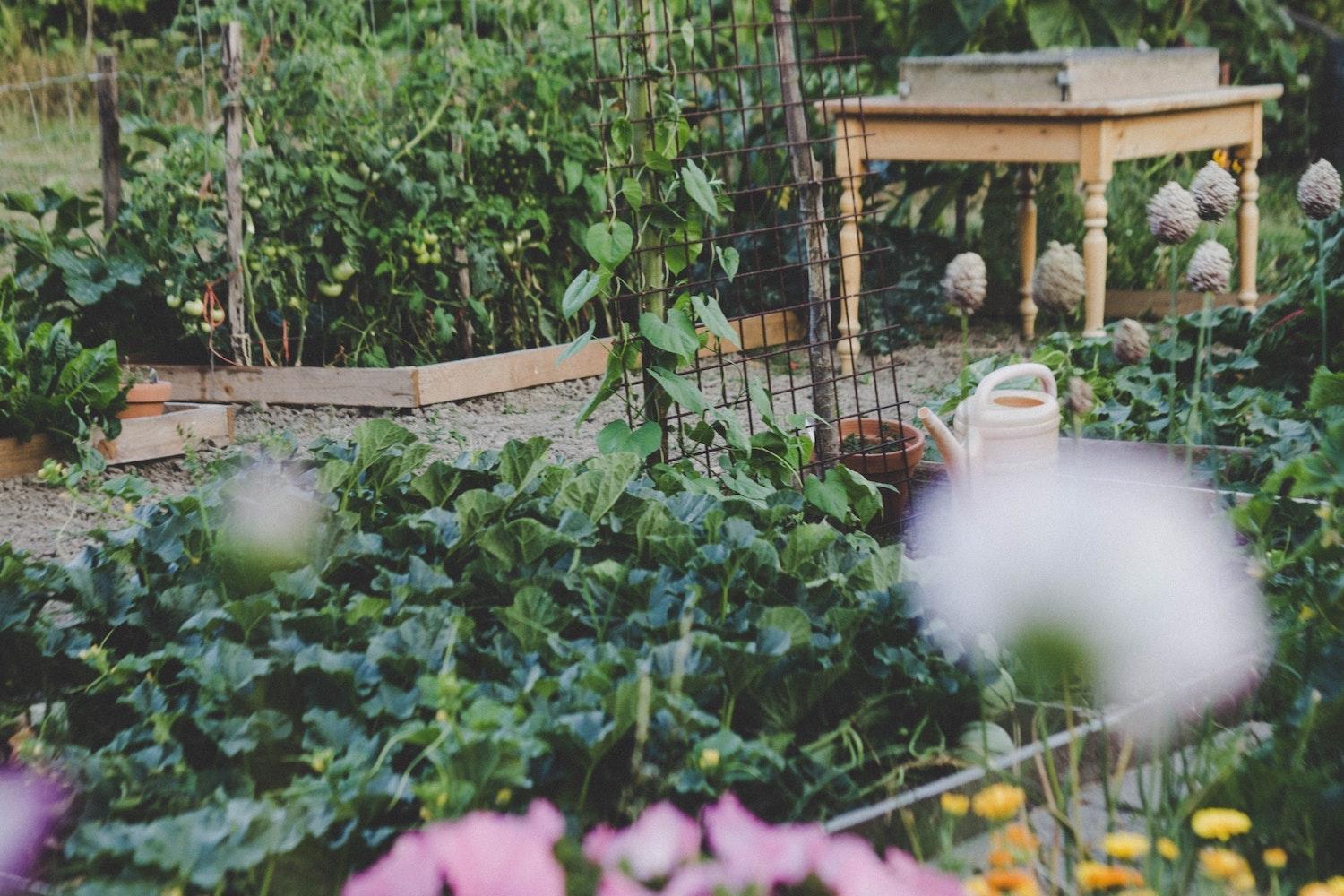Mid summer in the North American midwest, the garden is thriving. Every plant is reaching leaves toward the sky, and every root is nestling deep into the soil, drinking up the ample nourishment that comes with regular rain and enough organic compost. The sunflowers that were knee-high a few weeks ago will soon be taller than me. Their flower heads follow the sun as it arcs across the sky, and they end the day gazing toward the westerly hills. There are basketball-sized cabbages, canopies of kale providing shade for the vole who munches the beets, and if you were to stretch all of the winter squash and zucchini vines out in a line they would reach down the road and around the corner. Bees and hummingbirds buzz about, happily drinking up raspberry and oregano blossom nectar, doing their important pollinating work. The scarecrow is earning her keep as the peppers, tomatoes, and eggplants encourage their blossoms to fruit, and bushy potato plants lean over inviting thoughts of harvest. My daughter likes to dart between the rows with bare feet and collect bouquets of wild daisies. Turkeys and foxes and deer tend their young, and the reeds down at the lake tower over our heads when we push the canoe out to paddle. Like I said, things are thriving. And when I can remember how much life and abundance and beauty and breath-catching astonishment exists just outside the door, my family and I thrive, too.


When I remember to notice said life and abundance and beauty and astonishment, anyway. It’s all too easy to focus only on problems or hard tasks I don’t really want or know how to do: from the little discontents that pepper a human day to huge issues like climate disruption, racism, and pandemics. We humans have a knack for focusing really well on what isn’t going well. Even the optimists, I think. Even the people who see the glass as half full, and say, “hey at least I have a glass” aren’t immune to letting a low point dictate the day’s trajectory. Usually, I’m one of those gratitude-practicing women who likes to support others in figuring out how to notice the good in a day. But I still struggle with wishing I were somewhere other than my desk (or the car, or the store, or engaged in some other undesirable errand). All too often I get thinking about how much I dislike a certain way I have to do a task or hope the internet goes down because all I want to do is put my head on my keyboard. During the strange days of distance learning this past school year, even my 8-year-old got caught up in lamenting all that wasn’t ideal about spending so much time on digital tasks.
Fortunately, there’s a remedy for this state, and for me and my family, it involves going outside: To the garden to witness the growth that abounds or to the woods to breathe in cool mossy air or to the shores of a nearby lake to listen as frogs sing to each other from under the lily pads. We’re fortunate to have access to wild beauty just outside the door, but even when I still lived and worked in the depths of the city, going out to the backyard or stepping into natural light during the workday meant the difference between going to bed in a foul mood or turning in feeling connected to something bigger than myself.

As we move through the rest of 2020 amidst the unknowns and challenges that come with navigating a pandemic, rampant white supremacy, and continued ecological destruction, I remind myself that there is much life and abundance and beauty and breath-catching astonishment right outside the door. Even in the middle of the biggest city on earth, all I have to do is look up to the sky to reclaim the wildness that invites me to remember my roots. Even if it has to be through a window right before getting back to the work at hand. Thoreau put it well when he said, “In wildness is the preservation of the world.”

This post is a modified excerpt from 12 Tiny Things: Simple Ways to Live a More Intentional Life is now available for pre-order at www.12tinythings.com Join authors Heidi Barr and Ellie Roscher at @12TinyThings (instagram and Facebook), where they foster community around self-awareness and the cultivation of intentional practices that lead to living well as a responsible citizen of planet Earth.
Original Source: https://wearewildness.com/reclaim-wildness/

Join our community to interact with posts!